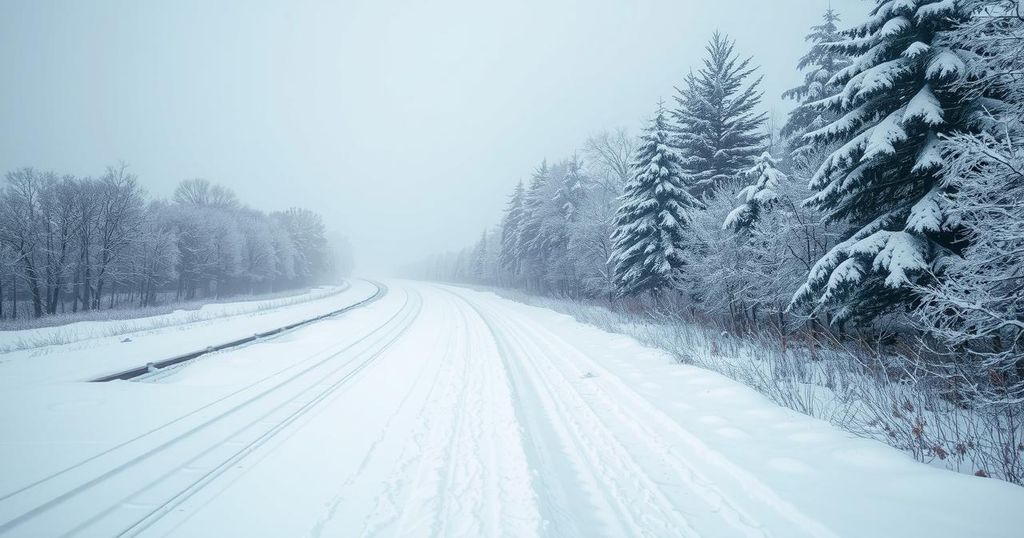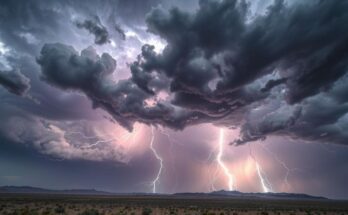Central Japan is experiencing heavy snowfall from March 3 to 5, disrupting transportation systems, especially trains in and around Tokyo. JR East has suspended several limited express services due to this inclement weather. Authorities warn of potential road closures as snowfall increases, urging residents to alter their plans as necessary.
Heavy snowfall is currently impacting transportation in central Japan, particularly in the Kanto Koshin region and Shizuoka Prefecture, from March 3 to 5. The adverse weather is caused by a low-pressure system combined with northern cold air, resulting in delayed train services, predominantly in Tokyo.
East Japan Railway Co. (JR East) announced the suspension of the Azusa limited express service from Shinjuku Station to Matsumoto Station starting March 4, with cancellations beginning with the Azusa No. 38 at 2:50 p.m. Outbound services will also halt, commencing with the Azusa No. 33 at 3:00 p.m. Additionally, the Fuji and Kaiji limited express services will be temporarily discontinued.
The transport ministry and Japan Meteorological Agency warn of possible road closures on expressways and national highways that might follow the heavy snowfall. On March 3, the Kanto Regional Development Bureau enacted precautionary closures on national routes adjacent to the Joshin-Etsu and Nagano expressways due to significant snow accumulation. The closures were lifted later that evening after extensive snow removal efforts.
Authorities suggest that further precautionary road closures may extend to a broader area encompassing Tokyo, Kanagawa, Yamanashi, and Nagano prefectures on March 4, contingent upon snowfall intensity and icy road conditions. Residents are advised to adjust their travel plans, limit outdoor activities, and work from home whenever feasible.
According to the Japan Meteorological Agency’s Tokyo Regional Headquarters, precipitation in the form of rain and snow is anticipated until a low-pressure system moves near the Izu Islands by March 5. The snowfall is expected to peak, particularly in Gunma, Tochigi, Nagano, and Shizuoka prefectures. Forecasts estimate around 30 centimeters of snow in the mountainous regions of northern Kanto, with varying amounts across Koshin, Hakone, Tama, Chichibu areas, and minimal accumulation in Tokyo’s urban wards.
In summary, heavy snowfall is causing significant disruptions to transportation systems in central Japan, particularly affecting train services and potentially leading to road closures. Residents are urged to exercise caution and re-evaluate their travel plans as adverse weather conditions are expected to persist until March 5. The Japan Meteorological Agency continues to monitor the situation and provide updates on snowfall accumulation and transportation impacts.
Original Source: www.asahi.com




